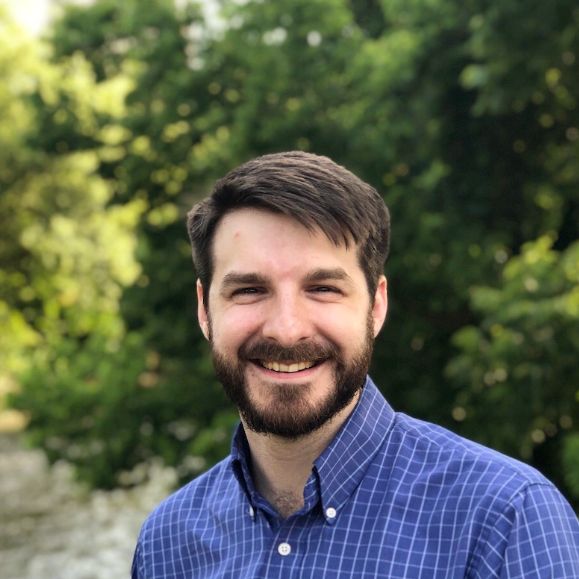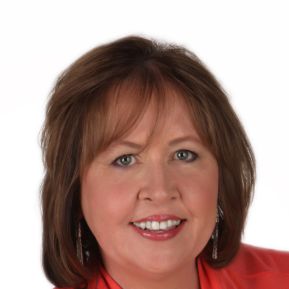Finding Support for Obsessive-Compulsive Disorder (OCD) in St. Louis
Living with Obsessive-Compulsive Disorder (OCD) can feel overwhelming and isolating, but you’re not alone. You’re in the right place, and MiResource is here to make finding help easier. We connect you with therapists in St. Louis for both online and in-person care, matching you to support that fits your needs. Trust MiResource to guide you to compassionate, effective support in your community.
An Overview of Obsessive-Compulsive Disorder (OCD)
Obsessive-compulsive disorder (OCD) involves unwanted, distressing thoughts (obsessions) and repetitive actions or mental rituals (compulsions) that can disrupt daily life at home, work, or school. It matters because without support, Obsessive-Compulsive Disorder (OCD) can fuel anxiety, avoidance, and exhaustion—but with the right care, most people see real relief. Evidence-based therapy in St. Louis, like ERP (exposure and response prevention) and CBT, can help you reduce compulsions, manage triggers, and reclaim your time and peace.
Defining Obsessive-Compulsive Disorder (OCD)
Obsessive-compulsive disorder (OCD) is a mental health condition where unwanted, distressing thoughts (obsessions) trigger repeated actions or mental rituals (compulsions) to feel temporarily safer or “just right.” Hallmark symptoms include intrusive fears about harm or contamination, intense doubt, and repetitive behaviors like washing, checking locks, counting, arranging, or seeking reassurance that can take up an hour or more each day. In day-to-day life in St. Louis, Obsessive-Compulsive Disorder (OCD) can make it hard to get out the door on time, focus at school or work, enjoy time at Forest Park or a Cards game, or feel present in relationships. Authoritative sources like the National Institute of Mental Health, the American Psychiatric Association, and the Mayo Clinic describe Obsessive-Compulsive Disorder (OCD) as common, treatable, and best addressed with therapies like exposure and response prevention. If you’d like to learn more, explore the broader Obsessive-Compulsive Disorder (OCD) therapy resources on MiResource.
Benefits of Therapy for Obsessive-Compulsive Disorder (OCD)
Therapy for Obsessive-Compulsive Disorder (OCD) is effective and builds hope by giving you practical tools to manage intrusive thoughts and urges. Evidence-based care like Exposure and Response Prevention (ERP) within CBT helps you face fears safely, reduce compulsions, and reclaim time for work, school, and joy. Acceptance and Commitment Therapy (ACT) teaches you to relate differently to obsessive thoughts, increasing flexibility and daily functioning without rituals. Mindfulness-based strategies and skills training boost coping, lower anxiety and distress, and improve focus and sleep. Family-based therapy reduces accommodation, improves communication, and strengthens relationships, with skilled providers available in St. Louis.
The Therapy Journey – What to Expect
Starting therapy for Obsessive-Compulsive Disorder (OCD) in St. Louis typically begins with a compassionate initial assessment where a local clinician learns about your symptoms, history, routines, and what matters most to you. Together, you’ll set clear, realistic goals and create a personalized plan that may include evidence-based approaches like Cognitive Behavioral Therapy with Exposure and Response Prevention (ERP), Acceptance and Commitment Therapy (ACT), and mindfulness strategies. Ongoing sessions move at a pace that feels manageable, with your therapist collaborating closely with you to practice skills, track progress, and adjust the plan as your needs evolve. You can expect steady support, practical tools for daily life, and honest guidance about setbacks and successes so you feel supported—not rushed—through each step of change.
Tips for Choosing the Right Therapist in St. Louis
Go to MiResource, enter “Obsessive-Compulsive Disorder (OCD)” as the concern and set your location to St. Louis to see local options. Use filters to prioritize evidence-based approaches like CBT or ERP, or add modalities such as ACT or telehealth if that suits you. Select your insurance to view in-network providers, then choose your preferred language to ensure clear communication. Refine by real-time availability (next 48 hours, evenings, weekends, or telehealth) to match your schedule. Narrow further by St. Louis neighborhoods (e.g., Central West End, Tower Grove, Clayton, or University City) to find nearby care. Remember that personal fit matters—compare a few profiles, save favorites, and message or request appointments directly to get started today.
Why a Local St. Louis Therapist Can Make a Difference
St. Louis’s close-knit neighborhoods and strong Midwestern values shape how many residents talk about mental health, including Obsessive-Compulsive Disorder (OCD). Faith communities, sports culture around the Cardinals, Blues, and CITY SC, and multigenerational families can provide support but also add pressure to “push through” symptoms, making specialized Obsessive-Compulsive Disorder (OCD) care essential. Local therapists attuned to rituals triggered by community norms—like cleanliness expectations at family gatherings or perfectionism in high-achieving school districts—can tailor exposure and response prevention (ERP). A clinician who knows the rhythms of St. Louis life, from parish festivals to workplace cultures in Cortex and downtown, can help you practice skills where they matter most.
Getting to in-person sessions is manageable with MetroLink and MetroBus, or by car via I‑64/40, I‑44, I‑55, and I‑70; many practices cluster near the Central West End, Clayton, and along the Delmar Loop. Local care lets you do ERP in real-world settings like Forest Park, the Central West End, or busy lines at Busch Stadium, and plan around humid summers, spring storms, and icy winter days that can amplify contamination or harm-related obsessions. Familiarity with neighborhoods such as Tower Grove, Soulard, and Maplewood helps therapists design homework that fits your daily commute and routine. In-person work also supports coordinated care with nearby primary care and specialty clinics when medication or labs are part of your Obsessive-Compulsive Disorder (OCD) treatment.
St. Louis resources for Obsessive-Compulsive Disorder (OCD) include St. Louis Behavioral Medicine Institute’s Center for OCD & Anxiety-Related Disorders , NAMI St. Louis education and support groups , and the International OCD Foundation’s provider directory and groups. The Missouri Department of Mental Health can connect you to services statewide . For crises, call or text 988 (Suicide & Crisis Lifeline), call 911 for immediate danger, or contact Behavioral Health Response St. Louis 24/7 at 314-469-6644. Emergency departments include Barnes-Jewish Hospital , SSM Health Saint Louis University Hospital, Mercy Hospital St. Louis , and St. Louis Children’s Hospital for youth .
Obsessive-Compulsive Disorder (OCD) Therapy in St. Louis: FAQ Guide
When should I consider seeking help for Obsessive-Compulsive Disorder (OCD)?
Consider reaching out for Obsessive-Compulsive Disorder (OCD) help if your obsessions or compulsions persist or worsen, start interfering with daily routines, work or school performance, or strain relationships. It’s also important to seek support if you’re experiencing significant distress, avoiding places or activities because of triggers, or having safety concerns, including thoughts of self-harm. Early support can prevent symptoms from becoming more entrenched and help you get relief sooner. In St. Louis, you can access both in-person and virtual Obsessive-Compulsive Disorder (OCD) therapy to fit your needs.
What if I don’t click with my therapist right away?
It’s common not to click right away—many people try more than one therapist, and a strong therapeutic alliance is linked to better Obsessive-Compulsive Disorder (OCD) outcomes. You can switch at any time and use MiResource to compare St. Louis therapists’ approaches, insurance, and availability.
Does online therapy really work for Obsessive-Compulsive Disorder (OCD)?
Yes—online therapy can be very effective for Obsessive-Compulsive Disorder (OCD), with strong evidence supporting telehealth delivery of CBT and ERP. Many people appreciate the convenience, access to specialized clinicians, and the ability to practice exposures in their real home settings; just consider privacy, reliable internet, and your comfort with video sessions. In-person care in St. Louis may be preferred if symptoms are severe or complex, you need intensive/IOP or group ERP, close coordination for medication management, or you lack a private space at home. If you’re unsure, a St. Louis Obsessive-Compulsive Disorder (OCD) specialist can help you decide the best fit and can switch between online and in-person as needs change.
How do I prepare for my first session?
Preparing for your first session for Obsessive-Compulsive Disorder (OCD) therapy in St. Louis can feel like a big step—here’s how to make it easier:
- Clarify your goals: jot down what you’re hoping will change, your main obsessions/compulsions, triggers, avoidance behaviors, and how much time Obsessive-Compulsive Disorder (OCD) takes each day.
- Bring helpful info: photo ID, insurance card, list of medications/supplements and doses, past diagnoses or treatment notes, allergies, and emergency contacts. A notebook, pen, water, and a small comfort item can also help.
- Gather concrete examples: note recent situations where Obsessive-Compulsive Disorder (OCD) showed up, what you did to cope, and what you wish you could do instead. Include any physical sensations or thoughts that make exposures feel hard.
- Plan logistics: arrive 10–15 minutes early (or test your telehealth setup), sort out parking or transit, and have payment details ready so you can focus on you.
- Know what to expect: the first session usually covers your history, current symptoms, and may include questionnaires (like Y‑BOCS). You’ll discuss treatment approaches (often ERP/CBT) and set goals together—you won’t be pushed into exposures on day one.
- Ask key questions: What is your experience and training with ERP for Obsessive-Compulsive Disorder (OCD)? How do you tailor exposures to my symptoms? What does homework look like? How often will we meet and for how long? How do you measure progress? What support is available between sessions? Can family/partners be involved if helpful?
- Plan aftercare: give yourself time to decompress, write down takeaways and new questions, and schedule your next appointment. Celebrate taking this important first step.
Can therapy truly help with Obsessive-Compulsive Disorder (OCD)?
Yes—decades of research show that cognitive behavioral therapy, especially Exposure and Response Prevention (ERP), helps most people with Obsessive-Compulsive Disorder (OCD), with about 60–70% seeing meaningful symptom reduction. Therapy can reduce intrusive thoughts and compulsive rituals, lower anxiety, and restore time, energy, and confidence in daily life. Sticking with regular sessions and practicing skills between appointments are key to lasting progress. In St. Louis, you can access trained therapists who will guide you step by step and support your commitment to getting better.













